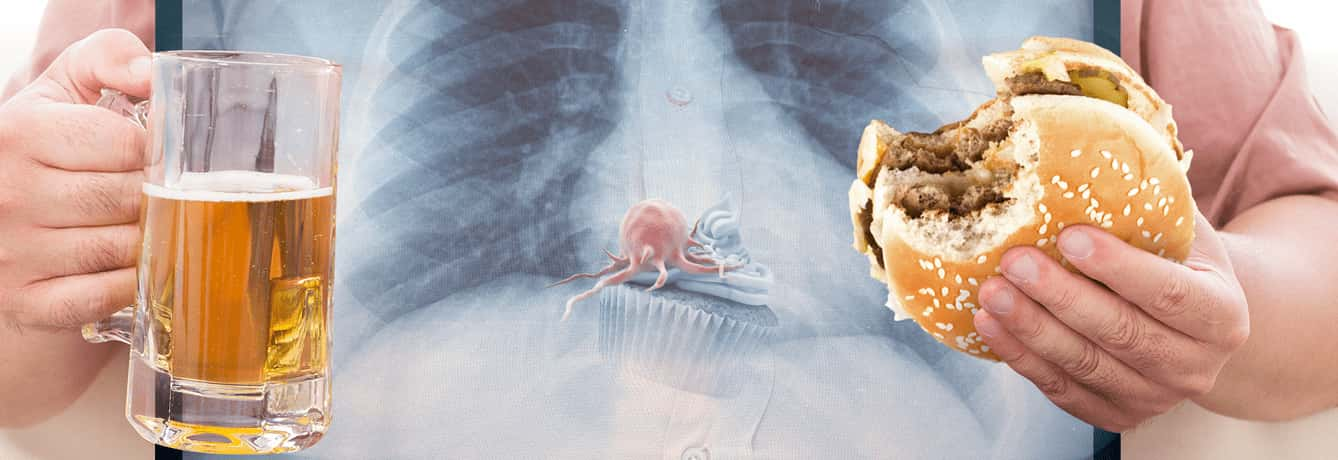With 21,000 new cases of stomach cancer diagnosed in the U.S. each year, and rising rates of this cancer globally, risk factors are under increased scrutiny. And with nearly double the incidence of stomach cancer among African Americans compared to Caucasians (with black males at highest risk), this February’s Black History Month provides a reminder of one more historical inequity in need of redress.
Among many factors involved, a recent study in Experimental and Therapeutic Research singles out obesity as playing a particularly powerful role in driving not just the incidence, but the actual size of stomach tumors. Chinese researchers observed laboratory mice on a regular diet, compared to those on a high-fat diet, over the course of three months. Not only did the overeating mice end up weighing 25% more, they grew stomach cancer tumors 74% larger than the normal-weight mice, with 30% more capillaries (anatomical evidence of faster tumor growth). The obese mice also suffered a 65% lower immune capacity.
Why might this be? Science now recognizes fat as an active organ that secretes hormones which speed not just stomach cancer — but eight other types as well. Fortunately, the most reliable weapon against obesity is a diet full of fruit and vegetables. And high intake of vegetables has been linked to a 50% lower risk of developing stomach cancer — with cabbage showing particular promise. What to avoid: Processed meat, regular consumption of which is linked to a 38% higher risk of stomach cancer.
Published February 1, 2013



